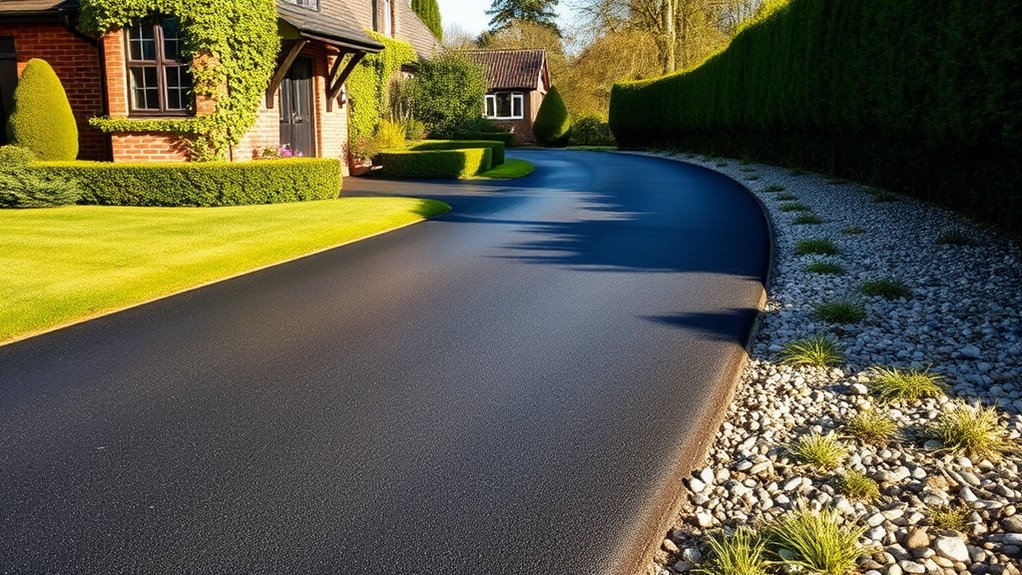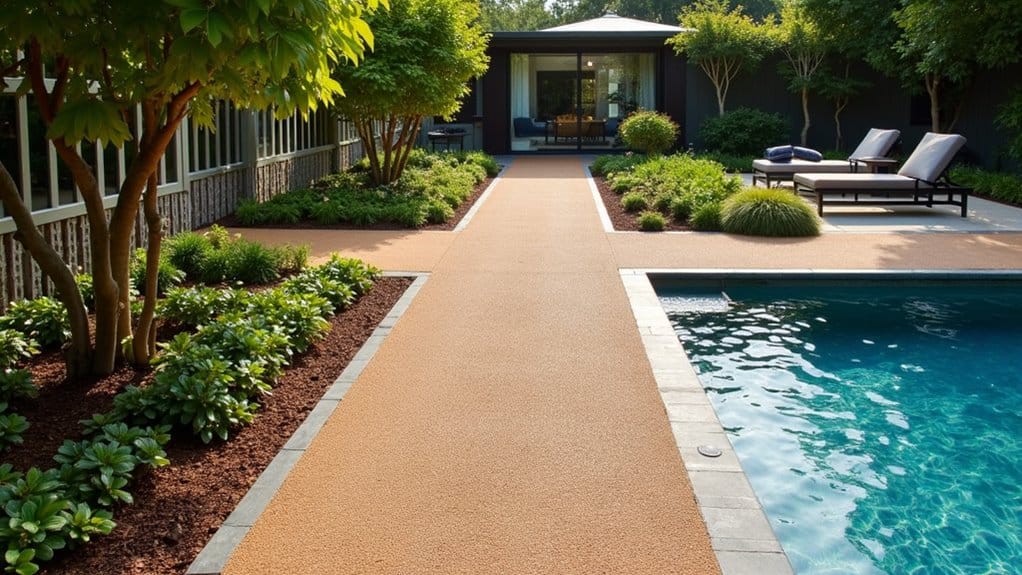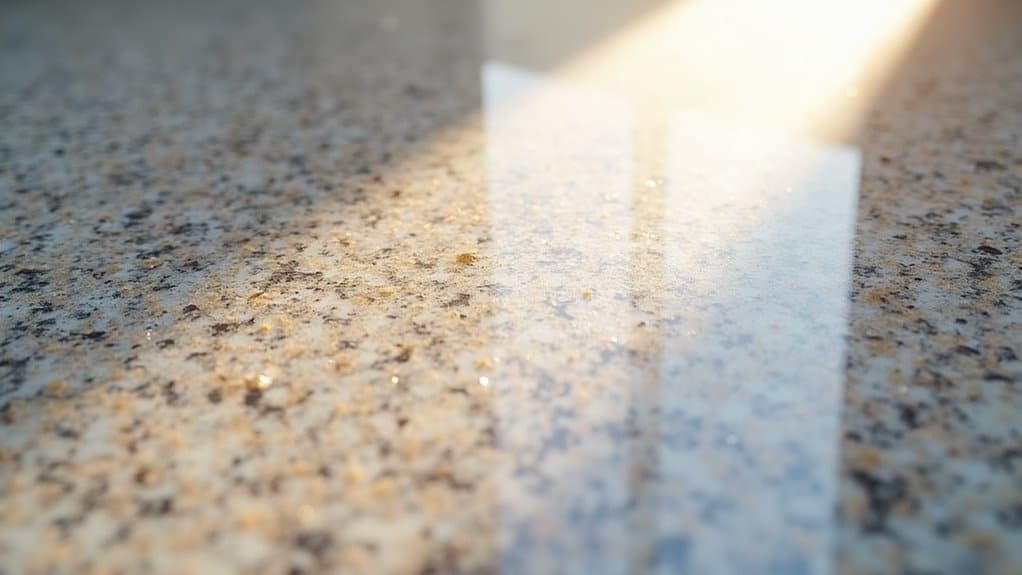A tarmac driveway can be an excellent option for your home, known for its durability and cost-effectiveness, lasting over 25 years with proper care. It's quick to install and requires minimal maintenance, saving you both time and money. However, you might want to consider environmental concerns and the possibility of cracking under heavy traffic. The good news is that you can customise its appearance to suit your style. Weigh up the pros and cons of tarmac driveways to determine if they're the right fit for your home.
Table of Contents
ToggleKey Takeaways
- Tarmac driveways are budget-friendly, with lower installation costs and less upkeep compared to options like concrete or block paving.
- They boast impressive durability, lasting over 25 years and resisting water damage thanks to bitumen's waterproof qualities.
- You'll need to seal the surface every two to five years to avoid cracks and keep it looking good, which can add to your overall expenses.
- There are environmental issues to consider, such as resource depletion and increased runoff, so exploring sustainable alternatives might be worthwhile.
- Tarmac also allows for various design options to boost your home's curb appeal, though be mindful that heavy traffic can lead to cracking.
Durability and Strength of Tarmac Driveways
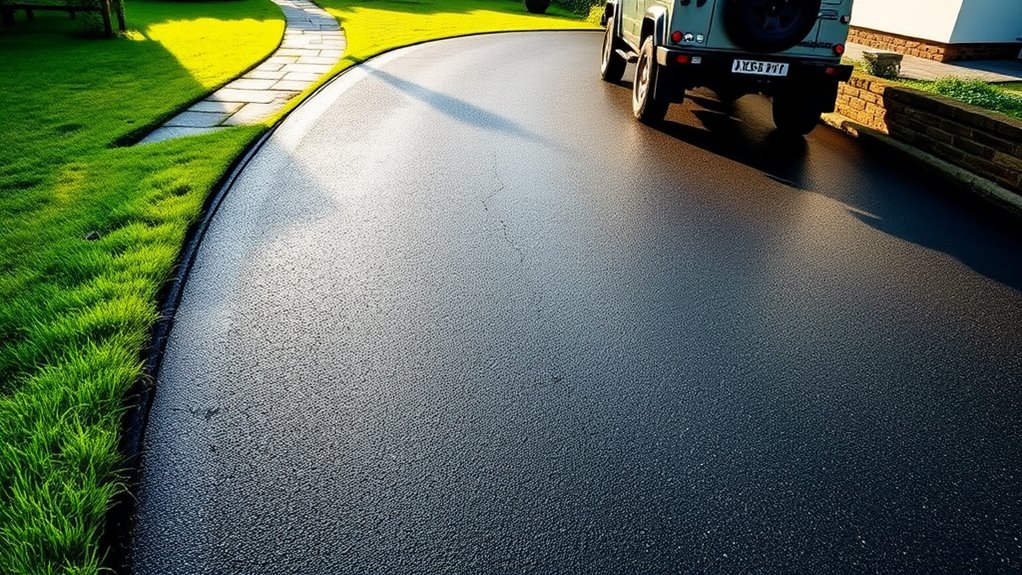
When choosing a tarmac driveway, durability and strength are significant benefits. Tarmac is made from a mix of crushed stone and sand, bonded with bitumen, which gives it excellent structural integrity. This mixture hardens over time, with a lifespan that can exceed 25 years with proper care. The bitumen offers waterproofing, making the surface resistant to water damage, while its flexibility allows it to expand and contract with temperature changes, reducing the risk of cracking. Tarmac driveways can also handle heavy loads, making them suitable for both homes and businesses. When installed and compacted correctly, tarmac can support multiple vehicles without compromising its strength. These features make tarmac a robust choice for driveways that endure the test of time. Additionally, its low maintenance requirements ensure that homeowners can enjoy long-lasting performance without frequent repairs. Regular maintenance, including sealant application, is essential for extending the lifespan of the driveway.
Cost-Effectiveness of Tarmac Installation
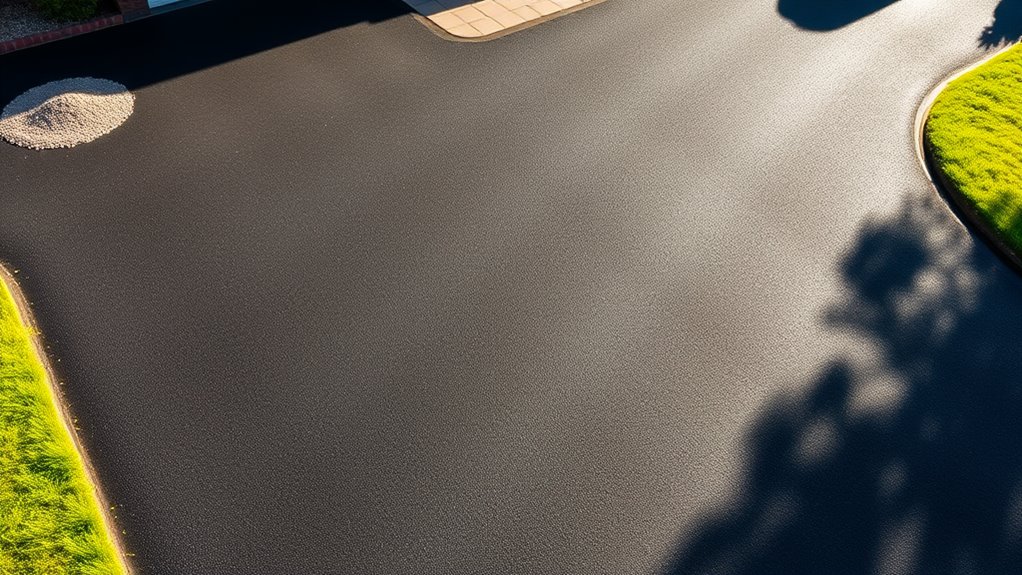
When considering a tarmac driveway, you'll find it generally has lower installation costs than alternatives like concrete or block paving. Tarmac requires less preparation work, resulting in quicker installation and cost savings. Additionally, its minimal maintenance needs can lead to long-term savings. This is partly due to its durability against heavy loads, making it an ideal choice for areas with frequent vehicular traffic.
Lower Installation Expenses
Tarmac driveways provide excellent savings, making them a popular option for homeowners looking to keep installation costs down. With lower initial expenses and efficient installation methods, they are often more affordable than concrete or paving stones. Here's a brief cost analysis:
| Factor | Tarmac Driveway Cost |
|---|---|
| Material Cost | Cheaper than concrete |
| Labour Cost | Usually less expensive |
| Installation Time | Quick and straightforward |
| Size Impact | Lower cost per square metre |
| Additional Features | Costs rise with extras |
Additionally, asphalt driveways can last up to 25 years, providing a long-term cost-effective solution for homeowners.
Long-Term Savings Benefits
Choosing a tarmac driveway not only cuts installation costs but also provides long-term financial advantages for your budget.
With a lifespan of 20 to 30 years, tarmac is a wise investment, reducing the need for frequent replacements. When repairs are necessary, they're usually more affordable than those for other materials, extending the life of your driveway.
Additionally, tarmac driveways can boost your property's value, making it more appealing to potential buyers. Their resilience against harsh weather also means fewer repairs down the line.
Minimal Maintenance Costs
Tarmac is a smart choice for driveways due to its minimal maintenance requirements, making it budget-friendly for homeowners.
It has a long lifespan, needing just occasional cleaning and resealing to keep it looking good. Any small cracks can be easily fixed with tarmac patching compounds, which saves you from expensive repairs.
For more significant wear, resurfacing is a cost-effective option to prolong your driveway's life.
Overall, tarmac not only reduces upkeep costs but also provides a sturdy and attractive surface that enhances your property.
Enjoy a low-maintenance driveway without compromising on style!
The Installation Process Explained
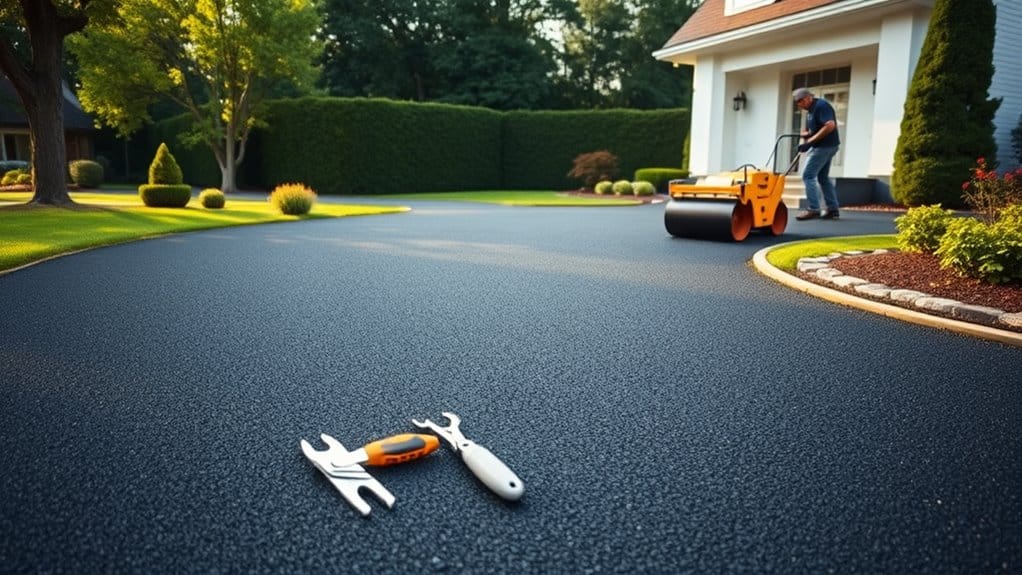
Installing a tarmac driveway involves several essential steps to ensure it's both durable and visually appealing.
Start by assessing the area: measure and design your driveway to ensure it meets your needs. Next, clear the site of any existing surfaces, debris, or plants. Proper preparation is key, which includes excavating to a depth of 160-250mm, depending on the soil type and the amount of traffic expected.
Once excavated, compact a layer of crushed aggregate to create a stable sub-base. After this, install edging materials like kerbstones to clearly define the boundaries of your driveway.
Finally, lay the tarmac in two layers: first the binder course for strength, followed by the wearing course for a smooth finish. Make sure to use effective compaction techniques to achieve an even surface.
This process will help ensure your driveway stands the test of time.
Maintenance Requirements for Longevity
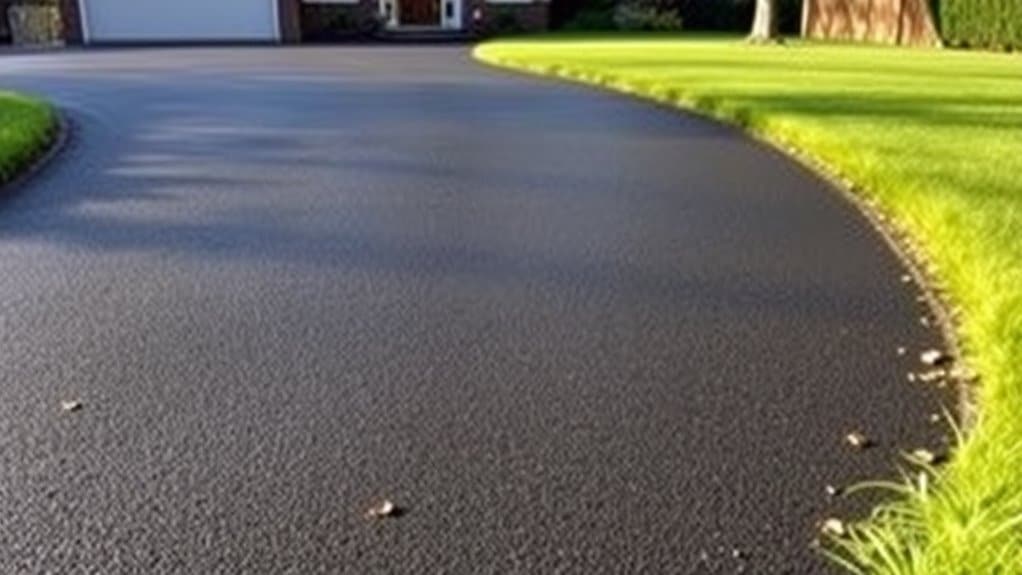
To keep your tarmac driveway in good condition and extend its lifespan, regular sealing is essential.
Apply a seal coat every two to five years to protect it from water damage and improve its durability.
Additionally, clean up oil spills promptly to prevent stains and deterioration, ensuring your driveway stays smooth and attractive.
Regular Sealing Importance
Regularly sealing your tarmac driveway is crucial for extending its lifespan and avoiding expensive repairs.
Effective sealing methods can significantly enhance surface protection and keep your driveway in top condition.
Here are some important benefits of regular sealing:
- Prevention of Deterioration: It helps stop cracks and potholes from developing.
- Cost Savings: Regular sealing can save you money on future maintenance.
- Weather Protection: Sealants create a waterproof barrier, guarding against moisture damage.
- Aesthetic Improvement: Sealing revives the tarmac's original colour, boosting your property's appearance.
Immediate Oil Spill Response
Even with regular sealing to protect your tarmac driveway, unexpected oil spills can create serious challenges. Quick action is crucial for effective oil containment and spill prevention. If you respond swiftly, you can minimise damage and avoid health risks. Here's a look at the potential challenges you might encounter:
| Challenge | Impact |
|---|---|
| Slippery surface | Increased risk of slips and falls |
| Soil and water pollution | Environmental damage |
| Asphalt damage | Raveling and potholes over time |
| Health risks | Respiratory issues from fumes |
| Difficult removal | Oil seeping into cracks |
For minor spills, DIY methods like using sawdust can be helpful, but seeking professional assistance is often the best route for thorough cleaning and safety.
Environmental Considerations of Tarmac
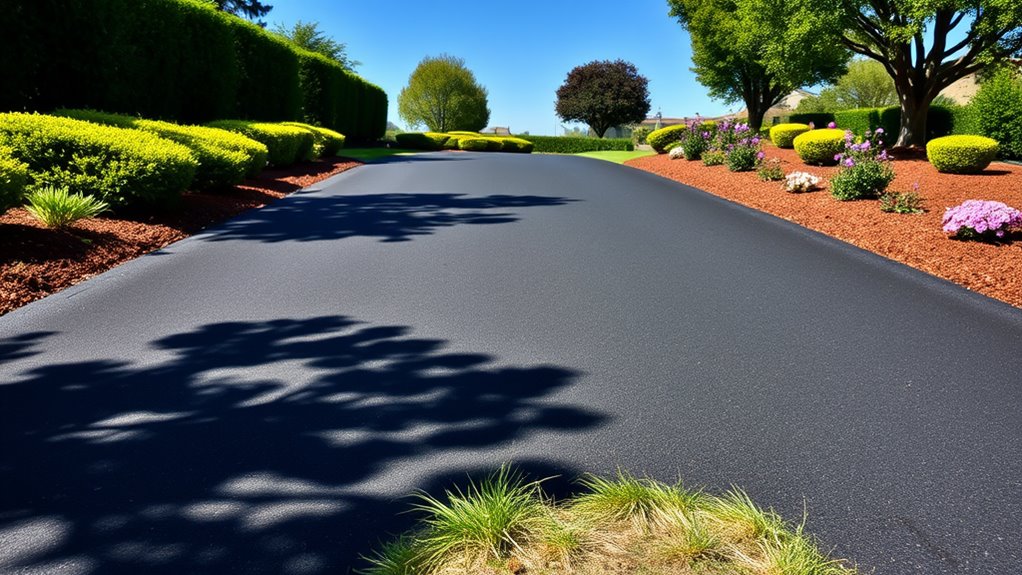
Tarmac driveways are known for their durability and visual appeal, but they come with significant environmental concerns that should be considered. Here are the main issues:
- Resource Depletion: Tarmac is made from petroleum, which contributes to the depletion of natural resources.
- Pollution: The process of heating tarmac releases harmful emissions, negatively impacting air quality.
- Stormwater Runoff: Tarmac is impervious, leading to increased runoff and a heightened risk of flooding.
- Habitat Disruption: Construction can disrupt local ecosystems and result in habitat loss.
To address these environmental issues, consider sustainable alternatives such as using recycled materials, opting for permeable tarmac, and installing eco-friendly drainage systems.
Design Options and Aesthetic Appeal
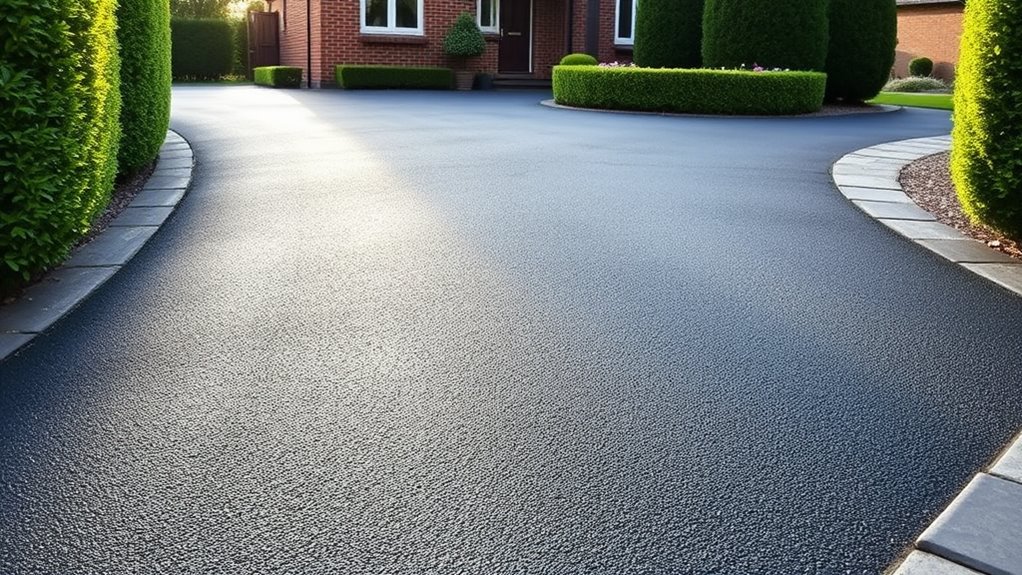
When considering a tarmac driveway, you'll find plenty of design options to enhance your home's curb appeal. Tarmac is highly versatile, allowing you to choose from colours like red or green to match your home's style.
You can further improve the look with decorative edging using brick or granite borders. Patterns such as circular designs can make for striking entrances, while incorporating materials like paving stones adds interest.
For a touch of elegance, think about a glossy finish and solar lighting for added charm at night. With these customisable features, your tarmac driveway can blend seamlessly with your landscape, enhancing both the aesthetic and value of your property.
Practical Benefits for Vehicle Owners
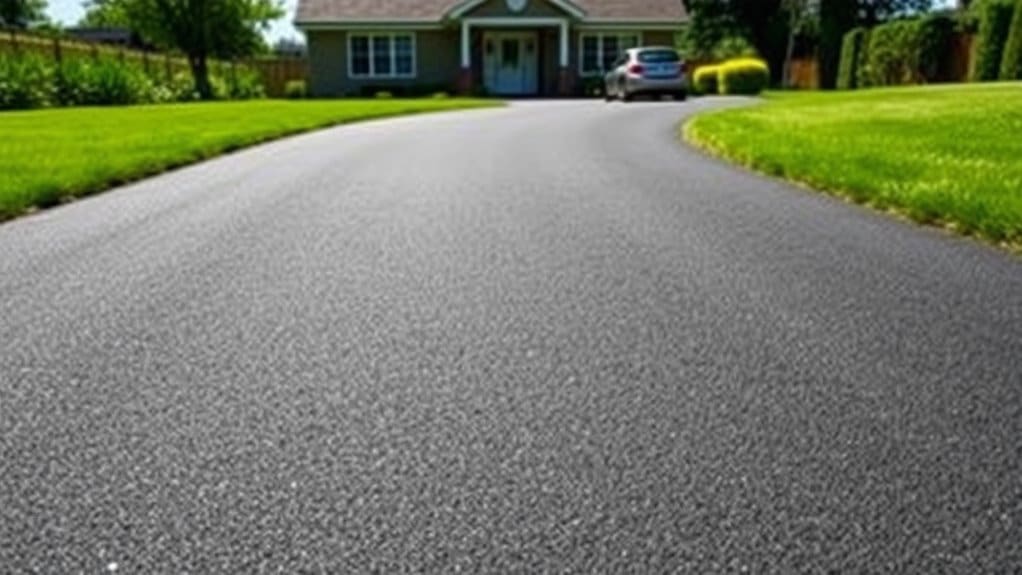
If you're thinking about installing a tarmac driveway, you'll find several practical benefits for vehicle owners.
Here are some key advantages that improve safety and usability:
- Durability: Tarmac can handle heavy loads and adapts well to changing ground conditions, which helps minimise cracking over time.
- Cost-Effectiveness: With lower upfront costs and minimal maintenance requirements, tarmac is a budget-friendly option in the long run.
- Weather Resistance: It offers better traction in wet or snowy weather, making for safer driving conditions.
- Smooth Surface: A level finish reduces wear and tear on your vehicle and simplifies maintenance tasks.
These benefits make tarmac driveways a smart choice for keeping your vehicles safe and ensuring longevity.
Enjoy a reliable, low-maintenance driveway tailored to your needs!
Potential Drawbacks of Tarmac Driveways
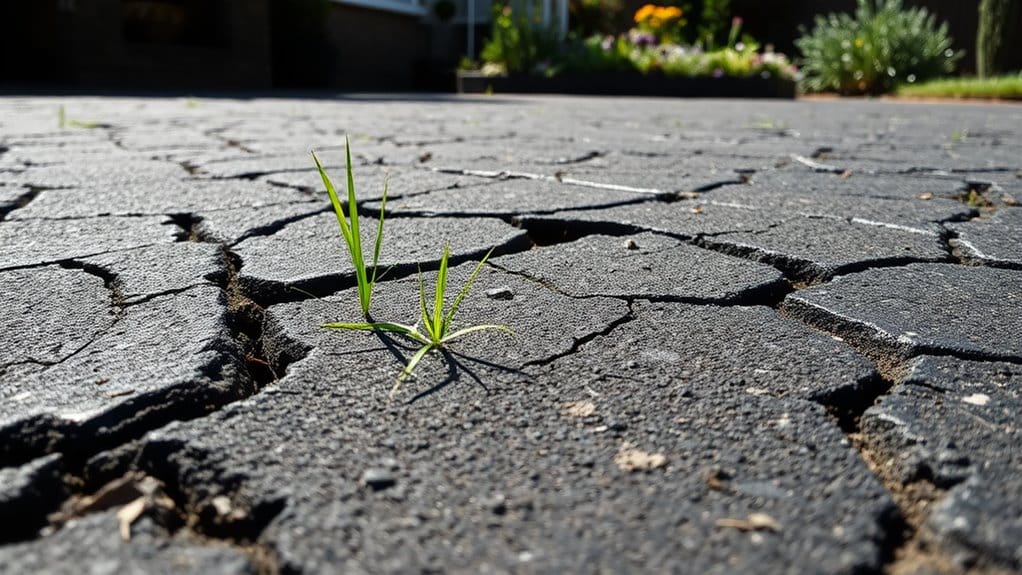
Tarmac driveways offer clear advantages for vehicle owners, but it's essential to consider the potential drawbacks before deciding. One key issue is durability; tarmac can crack under heavy traffic and typically needs a sealant every 3 to 4 years to keep looking good.
There are also significant environmental concerns. The production of tarmac has a higher carbon footprint due to energy-intensive methods and its reliance on fossil fuels.
Moreover, its non-permeable surface can lead to increased water runoff, causing problems with stormwater management. Additionally, the chemicals released during production can harm air quality. Resin driveways provide a more durable and aesthetically pleasing alternative, lasting longer and requiring less maintenance.
Making the Decision: Is Tarmac Right for You?
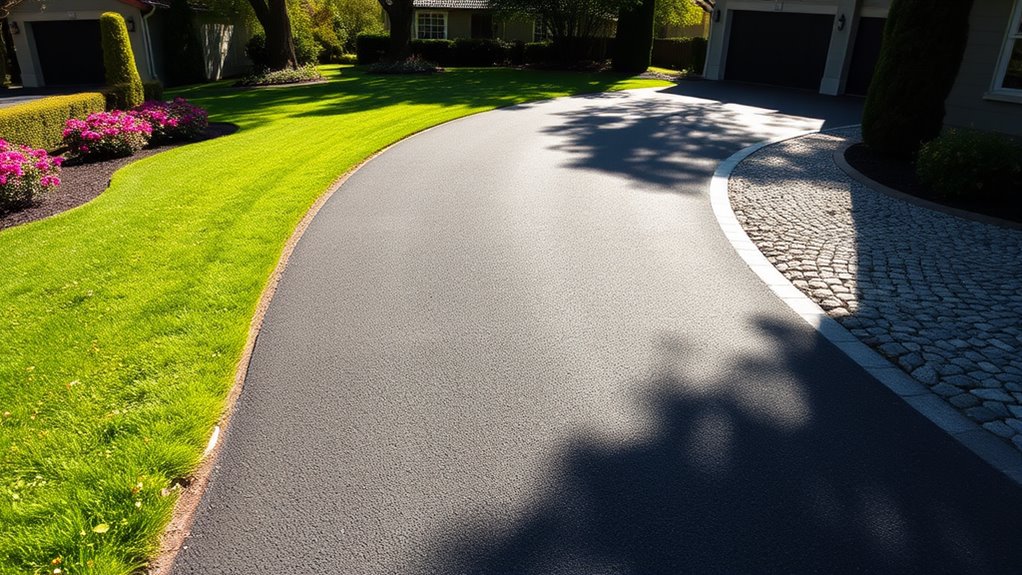
Is a tarmac driveway the right choice for your home? Here are some key benefits to consider:
- Durability: Tarmac is built to endure heavy traffic, ensuring it lasts for years.
- Cost-Effective: Initial installation costs are generally lower, which can lead to savings over time.
- Quick Installation: Tarmac can be laid in just a few days, allowing you to get back to your routine swiftly.
- Aesthetic Appeal: Available in various colours and finishes, tarmac can enhance the look of your driveway.
If you prefer a smooth surface that's easy to maintain, tarmac could be a suitable option.
Just be sure to consider your local climate and drainage requirements for a successful installation.
Frequently Asked Questions
How Does Tarmac Compare to Other Driveway Materials?
When comparing tarmac to other driveway materials, it typically has a shorter lifespan of around 12-13 years. However, it stands out for its aesthetic appeal and quick installation, making it a practical choice for homeowners on a budget. For instance, if you're looking for a driveway that can be laid down swiftly without compromising on looks, tarmac could be the way to go.
Can I Install a Tarmac Driveway Myself?
Imagine upgrading your driveway to a smooth tarmac finish. With the proper tools and a solid plan, you can take on this DIY project. Just keep in mind that attention to detail is essential for a long-lasting result.
What Is the Lifespan of a Tarmac Driveway?
A tarmac driveway generally lasts between 15 to 20 years. To extend its lifespan, it's important to carry out regular maintenance, such as sealing and making necessary repairs. You can also select from a range of tarmac colours to improve your property's appearance.
Is Tarmac Safe for Pets and Children?
Tarmac safety is important for pets and children. Always supervise them closely when they are near tarmac surfaces. Regular maintenance is crucial, as cracks and loose stones can pose hazards. It's also wise to create designated play areas away from the driveway to reduce risks and ensure a safe environment for everyone.
How Does Temperature Affect Tarmac Driveways?
Temperature changes significantly affect tarmac driveways. Hot weather can soften the surface, leading to ruts or indentations, while cold temperatures may cause cracks as the material becomes less flexible. To ensure durability, it's best to lay tarmac during mild weather conditions. Regular maintenance, such as sealing cracks and cleaning debris, will help your driveway withstand the UK's variable climate.
Conclusion
Still undecided about a tarmac driveway? You're not alone—many homeowners find the choice challenging. Tarmac offers durability and a polished appearance, but it's important to consider factors like maintenance and potential cracking over time. Think of it like choosing a reliable car; you want something that will last and require minimal fuss. Take your time to weigh your options and make an informed decision.
Prepare the perfect base for your resin bound stone installation and discover the crucial factors that ensure lasting durability.
Know where resin bound surfacing can transform spaces for both residential and commercial use, and discover the countless benefits that Read more
A stone carpet combines beauty and resilience in flooring, but what makes quartz floors uniquely beneficial? Discover the secrets behind Read more

